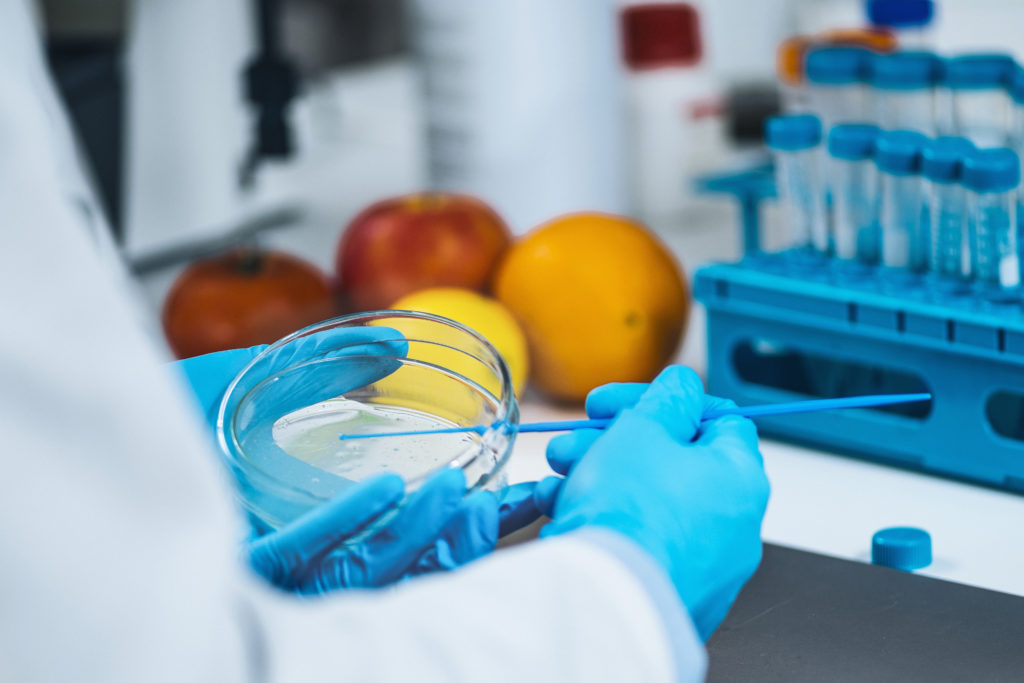Canadian nanotechnology company Sixth Wave Innovations Inc. recently announced that its patent-pending Accelerated Molecularly Imprinted Polymer (AMIPs) food safety testing technology has expanded its library of detectable foodborne illness-causing pathogens. While AMIPs already includes E. Coli, the new tool will also cover Salmonella, Listeria monocytogenes and Sarcina.
“E. coli, Salmonella and Listeria are three of the most prevalent bacteria associated with foodborne illnesses,” said Dr. Garrett Kraft, vice president of innovation at Sixth Wave, in a press release. “The ability to rapidly test and detect these pathogens on food and processing equipment allows for immediate intervention and remediation that can reduce widespread contamination that results in loss of product, foodborne illness and subsequent devastating economic impact to the food producers associated with product recalls.”
According to the US Department of Agriculture (USDA), in 2018 there were over one million Salmonella cases that lead to 378 deaths and cost $4.14 billion per year. While there are fewer E. coli and Listeria cases and deaths, they still cost approximately $311 million and $3.19 billion per year, respectively. From the identification of outbreaks to outpatient expenditures and lost wages, foodborne illness outbreaks cost Americans billions of dollars each year. Sixth Wave is hopeful its new food safety testing tool will reduce these multi-billion dollar outbreaks.
Related: Food Safety Best Practices: Lessons Learned from the COVID-19 Pandemic
To expand its scope, Sixth Wave integrated new bacteria-imprinted biosensor components into a prototype device. Initial selectivity data showed promising results that enabled quick, onsite multiplex testing capabilities, meaning users would be able to detect multiple pathogens at the same time. The advancement will allow Sixth Wave to commercialize a set of rapid diagnostic tools for food safety testing.
One of the largest industry difficulties to food safety testing is the excessive cost of microbial testing equipment along with skilled labor. The most common testing techniques include chromatography and spectroscopy for small molecule and heavy metals testing as well as polymerase chain reaction (PCR) and immunoassay for pathogen detection.
However, the company’s AMIPs testing platform offers the food industry a fast, reliable and cost-effective way to increase food safety testing frequency and ensure the quality of food and beverage products. The nearly instant testing time, ranging from seconds to approximately five minutes, is much faster than the weeklong turnaround of current methods.
Such rapid testing times can reduce facility downtime and allow for more frequent food safety testing. Contaminated equipment can also be quickly identified and cleaned, resulting in smaller batches of tainted products that can be easily isolated before leaving the facility. Additionally, the testing can be conducted onsite at a fraction of the cost of currently used certified lab testing.
Along with the AMIPs platform, Sixth Wave also developed its Pathogenic Amines Detection System (PADS), a sensing technology for the detection of biomarkers associated with food spoilage. The prototype food sensor can be easily integrated into individually packaged retail meat products to help food producers monitor the safety of their product throughout the production process.
These food safety testing technologies have the potential to address critical operational pain points in the food production sector and give consumers confidence in the safety of the products they are buying.












Join or login to leave a comment
JOIN LOGIN